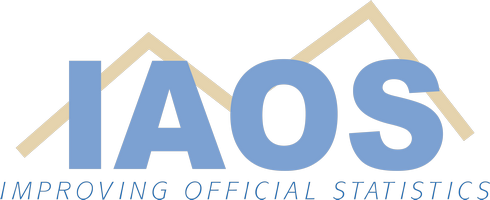| Status | Name | Country/affiliation | Title of the contribution | Brief summary |
|---|---|---|---|---|
| Chair | Denise Lievesley | UK | ||
| Speaker | Mr. Saeed Fayyaz | Iran | Improving Statistical Literacy on Labour Force Statistic challenges and opportunities | Labour force statistics and most notably unemployment rate, is one of the critical index for tracking the labour force trend and its circumstances in the market under the ILO standards and definitions. Although in many countries, the LFS has been implemented under the international definitions and classifications, a significant public users have not been persuaded by the labour force statistics is publishing by NSOs and Iran is not an exception. In this paper, however, different controversial aspects of LFS statistics will be illustrated and an analysis on these controversial statistics be presented. Next, The factors that are influence on public trustfulness on LFS statistics will be discussed. Finally, the practical suggestions on labour force statistics and the accurate interpretations and reporting will be expanded to improve the public's statistical literacy and trustfulness in labour forces statistics. |
| Speaker | Mr. Jozsef Gerse | Hungary | Developments in dissemination to satisfy data hunger induced by the pandemic | The Covid19-pandemic significantly affected the tasks of the statistical offices. The demand for timely data increased, new challenges arose and changes were needed to satisfy the users. This presentation introduces how the Hungarian Central Statistical Office coped with the challenges on the dissemination side, how it improved the timeliness and the relevance of the statistical information. |
| Speaker | Drs. Elsa Dhuli | Albania | Communicate the role of official statistics in pandemic time | "The communication of official statistics is one of the most important roles of official statistics required by the statistical office to provide transparent, neutral, and timely statistics that help users of official statistics to understand the developments of society. The environment in which official statistics operate has changed significantly, not only in the volume of data available but also in the demand for it. The expectations of different user categories are identified and assessed using Google Analytics covering the period from 2017 to 2021. Over the years and especially during COVID – 19 pandemic, different changes have been implemented on the INSTAT website. This paper will present an outline of how to communicate and know the users as one of the dissemination objectives. To better understand what users need even during pandemic times, every national statistical office should monitor web traffic data and user satisfaction." |
| Speaker | Ms. Asiya AL-Ghafri | Oman | Impact of Covid-19 on National Accounts Statistics Departments in Gulf Cooperation Council Countries; Challenges and opportunities | This paper examines how Covid-19 affected the statistical operations of National Accounts Statistics Departments (NASD) in the National Statistical Offices of Gulf Cooperation Council countries (NSO-GCC). The pandemic's impact was measured from an institutional perspective through a questionnaire that was distributed to NSO-GCC. The result indicated a generally negative impact for 2020, especially in the statistical processes related to data collection, but they anticipate that the impact will not continue beyond 2022. In addition, the paper emphasizes the necessity for countries to identify and operationalize alternative data sources to replace, supplement and complement traditional surveys in national accounts compilation. Paper results are expected to benefit both GCC-Stat and individual NSO-GCCs in developing their programs, learning from other countries' experiences, and turning challenges into opportunities for improvement. |



| Cookie | Duration | Description |
|---|---|---|
| cookielawinfo-checkbox-analytics | 11 months | This cookie is set by GDPR Cookie Consent plugin. The cookie is used to store the user consent for the cookies in the category "Analytics". |
| cookielawinfo-checkbox-functional | 11 months | The cookie is set by GDPR cookie consent to record the user consent for the cookies in the category "Functional". |
| cookielawinfo-checkbox-necessary | 11 months | This cookie is set by GDPR Cookie Consent plugin. The cookies is used to store the user consent for the cookies in the category "Necessary". |
| cookielawinfo-checkbox-others | 11 months | This cookie is set by GDPR Cookie Consent plugin. The cookie is used to store the user consent for the cookies in the category "Other. |
| cookielawinfo-checkbox-performance | 11 months | This cookie is set by GDPR Cookie Consent plugin. The cookie is used to store the user consent for the cookies in the category "Performance". |
| viewed_cookie_policy | 11 months | The cookie is set by the GDPR Cookie Consent plugin and is used to store whether or not user has consented to the use of cookies. It does not store any personal data. |